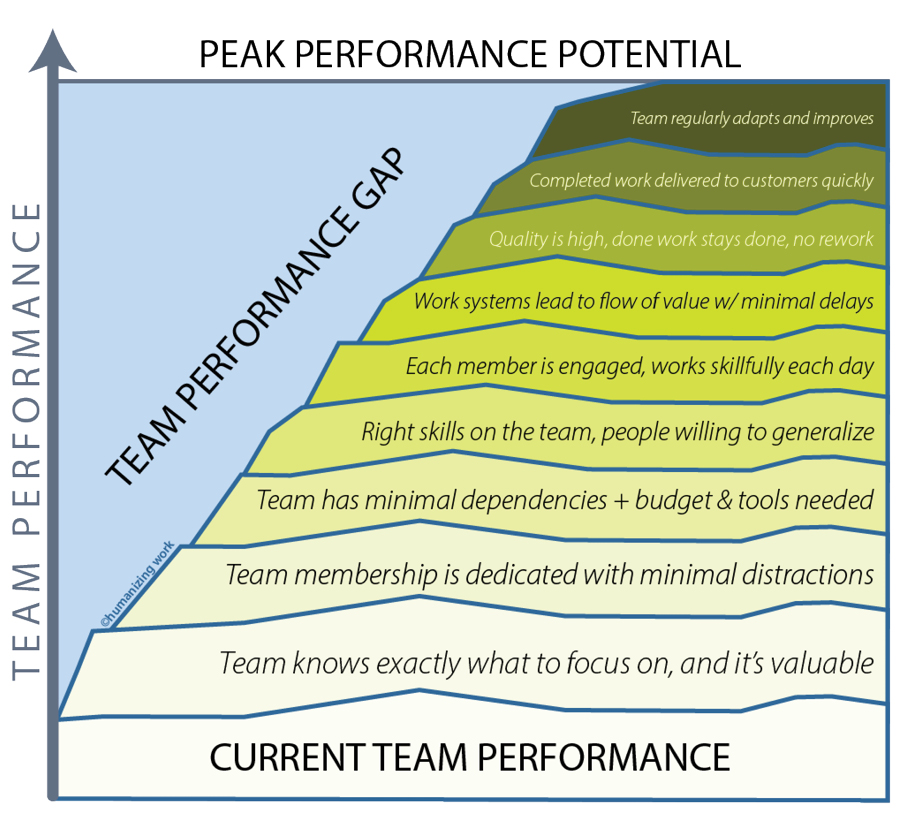When we say a team is underperforming, it can evoke visions of a bad manager berating a team to try to force them to work harder. But that’s not what we’re talking about here.
We want to tackle this as an objective question. Are most teams performing as well as they could? And if not, why?
Let’s talk about peak team performance.

Consider this incomplete list of conditions that would be associated with peak product development team performance:
- The team knows exactly what to focus on each day.
- The focus of each day is the most valuable thing the team could possibly be doing that day.
- It’s clear who’s on the team, and those team members are dedicated to the work of the team without distractions.
- The team has all the resources it needs (budget, tools, dependencies, etc).
- The skills on the team are well-matched to the work. People are T-shaped so there’s little unnecessary slack. Nor is anyone pulling in less-important work just to keep people busy in their specialties.
- Each individual on the team works in an engaged, skillful way every day.
- Work flows smoothly from start to finish, never getting blocked or delayed, even for things like one team member waiting for an answer from another.
- When work is done, it’s done. Quality is high, and there is no rework.
- Completed work items go to customers quickly, with no waste from inventory piling up.
- The team adapts how it works as its context changes over time.
How many teams have you seen where every condition on this list is true? Likely very few.
Therefore, most teams are underperforming. Not necessarily through any fault of their own. Just, objectively, they could be more effective than they currently are.
What if we think of that fact as an opportunity rather than a judgment?
If most teams are underperforming, that means concrete steps can be taken to improve most teams’ performance. In other words, there’s more capacity available without having to add more teams. The gap between today’s performance and peak performance represents potential.
There are three ways you can respond to that…
- DIY — Start with our list of conditions above. Add a few of your own if you want. Then, evaluate your team for gaps. You’ll probably find more than one. Consider which one is the constraint right now. Make a change in that area. Repeat until you see the performance you want.
- External Help — Engage an expert to help you hone in on how to achieve peak performance for your team. Our Team Reboot package is designed to help teams do just that. Over the course of a few days, we help you find the high-leverage changes that’ll get your team thriving. And then we support you as you run experiments to get better and better. Of course, this is the option we hope you’ll take!
- Do Nothing — Decide you don’t have time to work on this. Say it’s someone else’s responsibility. Assume things will somehow get better, perhaps after we get through this current crazy period of urgency. We hope you don’t choose this, but many teams and leaders do, leaving the huge potential of the team untapped.
Interested in learning more about how to close the gap between today’s performance and peak performance for your team? Visit humanizingwork.com/contact to schedule a free consultation.
Last updated